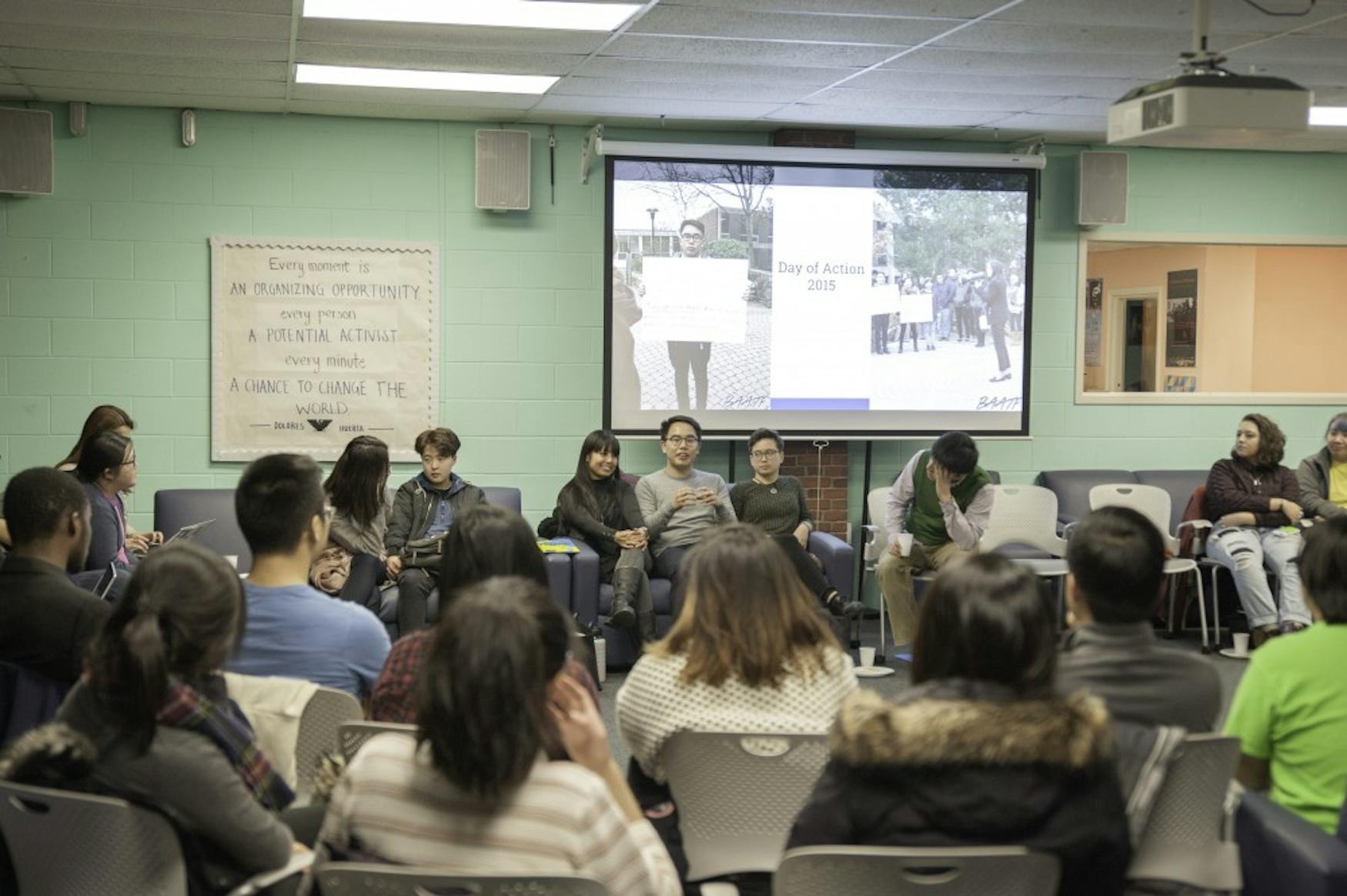Panel addresses need for more AAPI studies
Kicking off the first day of ’DEIS Impact, the University’s festival of social justice, students and faculty joined together on Thursday to discuss the necessity of establishing a department at Brandeis that focuses on the origins of Asian-American activism.
Led by the Brandeis Asian American Task Force and sponsored by Brandeis Asian American Students Association, the event featured a faculty-led dialogue and then transitioned into a discussion about the impact that the department could have at Brandeis.
Prof. Leanne Day (GRALL), the University’s Florence Levy Kay Fellow in Asian American and Pacific Islander Studies, and Prof. Pu Wang (GRALL), the Helaine and Alvin Allen Chair in Literature, led the dialogue portion of the event.
Day initiated discussions by breaking down and examining the terms Asian-American and Pacific Islander, as they contain a “multicultural and diverse identity that is often hidden.”
Day explained that AAPI as a category was established in the 1990 census, which expressed “Asian or Pacific islander as a single racial category.” However, many ethnic groups did not receive key representation because of this broad single category, leading advocacy groups to “disaggregate the Pacific islander component from the Asian-American category.”
Day stressed that, in addition to understanding the “national and formal implementation of what the racial box means,” it is important to have a space that bears in mind the “strategic coalational move to claim AAPI.”
She highlighted “the diverse languages, cultures and relationships to sovereignty and imperialism” that comes from combining the terms Asian American and Pacific Islander.
She continued to delve into the origins of the term “Asian-American,” coined in 1968 by Yuji Ichioka, an American historian and civil rights activist. However, she also noted that other social movements at the time, such as the civil rights and women’s liberation movements, also helped establish the term.
This historical background establishes the “origins of Asian America and activism as coming out of a connected global approach,” a key point which Day explained “often gets lost” when advocating for an AAPI program. She emphasized this because advocating for an AAPI program “is not only for those that identify with Asian-American or Pacific Islander,” rather it is “a broader comparative racialization project that seeks to dismantle white supremacy as a transnational move.” By combining the terms together, Day asserted that it emphasized “what it means to build coalitions” and establishes AAPI as a political category that is premised on taking action.
Wang asserted that “the primary importance of AAPI is not only about certain ethnic identities, but it is more about inclusion.”
Furthermore, student panelists expressed the importance of having the option to study Asian-American and Pacific Islander history. BAATF President Maxwell Tang ’19 explained that the intro class exposed students to an “entire history of people coming from many Asian countries with different roles, and experiencing the many layers of history,” crucial facets of history that other history classes may not provide.
In an interview with the Justice, Day explained that since Brandeis has a strong African and Afro-American Studies program, students in these classes can take additional AAPI courses and encourage comparative racialization.
Conclusively, Day explained that she feels that the Pacific Islander component of AAPI can help students think about both indigenous and Native American issues, broadening what is academic discourse is available for students.
Nearing the end of the discussion, BAATF Vice President Olivia Nichols ’20 acknowledged that part of the future courses revolves around “not only teaching history, but questioning societal norms through that teaching.”



Please note All comments are eligible for publication in The Justice.